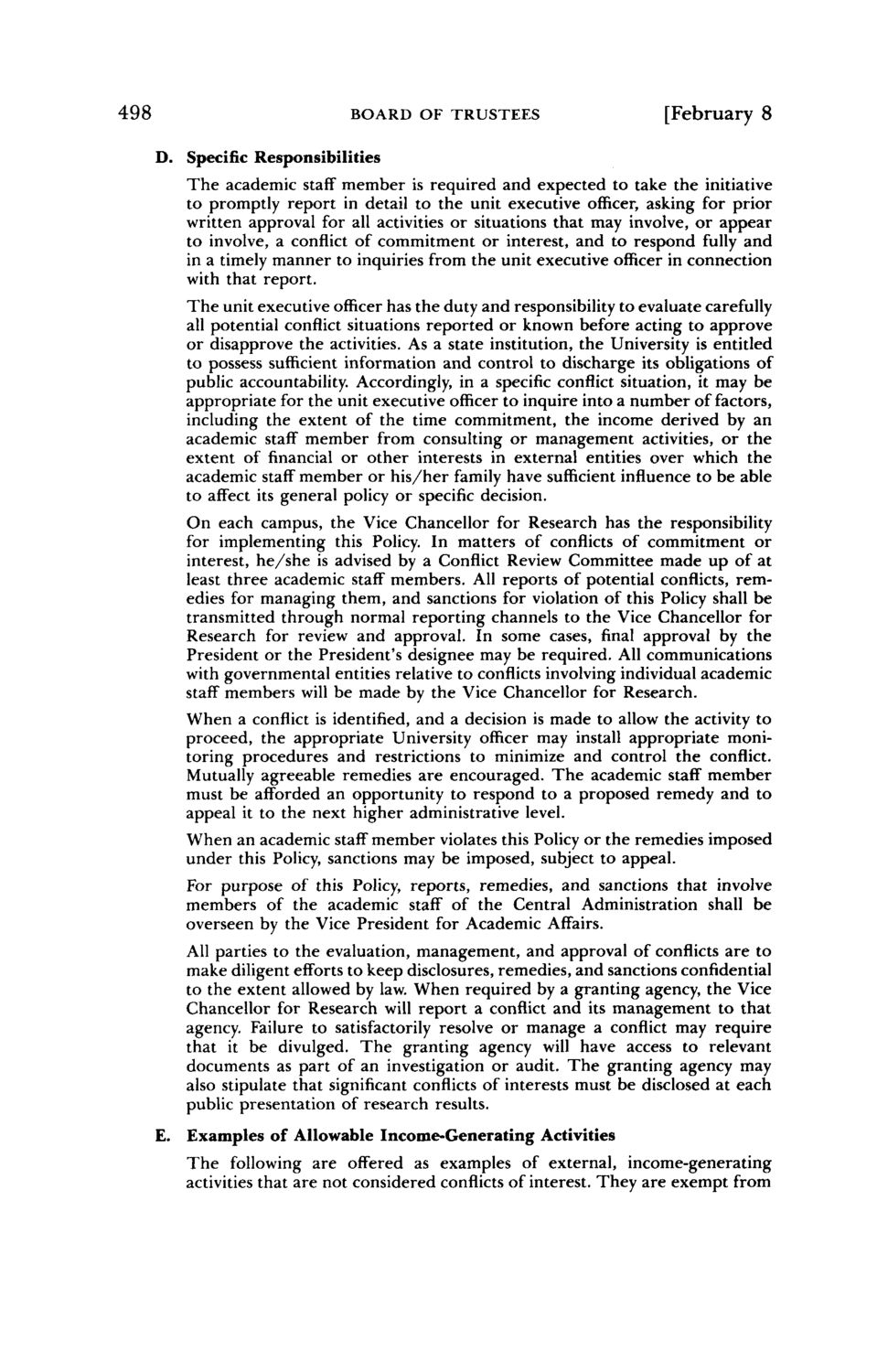| |
| |
Caption: Board of Trustees Minutes - 1994
This is a reduced-resolution page image for fast online browsing.

EXTRACTED TEXT FROM PAGE:
498 BOARD OF TRUSTEES D. Specific Responsibilities [February 8 T h e academic staff member is required and expected to take the initiative to promptly report in detail to the unit executive officer, asking for prior written approval for all activities or situations that may involve, or appear to involve, a conflict of commitment or interest, and to respond fully and in a timely manner to inquiries from the unit executive officer in connection with that report. T h e unit executive officer has the duty and responsibility to evaluate carefully all potential conflict situations reported or known before acting to approve or disapprove the activities. As a state institution, the University is entitled to possess sufficient information and control to discharge its obligations of public accountability. Accordingly, in a specific conflict situation, it may be appropriate for the unit executive officer to inquire into a number of factors, including the extent of the time commitment, the income derived by an academic staff member from consulting or management activities, or the extent of financial or other interests in external entities over which the academic staff member or his/her family have sufficient influence to be able to affect its general policy or specific decision. On each campus, the Vice Chancellor for Research has the responsibility for implementing this Policy. In matters of conflicts of commitment or interest, h e / s h e is advised by a Conflict Review Committee made up of at least three academic staff members. All reports of potential conflicts, remedies for managing them, and sanctions for violation of this Policy shall be transmitted through normal reporting channels to the Vice Chancellor for Research for review and approval. In some cases, final approval by the President or the President's designee may be required. All communications with governmental entities relative to conflicts involving individual academic staff members will be made by the Vice Chancellor for Research. When a conflict is identified, and a decision is made to allow the activity to proceed, the appropriate University officer may install appropriate monitoring procedures and restrictions to minimize and control the conflict. Mutually agreeable remedies are encouraged. T h e academic staff member must be afforded an opportunity to respond to a proposed remedy and to appeal it to the next higher administrative level. When an academic staff member violates this Policy or the remedies imposed under this Policy, sanctions may be imposed, subject to appeal. For purpose of this Policy, reports, remedies, and sanctions that involve members of the academic staff of the Central Administration shall be overseen by the Vice President for Academic Affairs. All parties to the evaluation, management, and approval of conflicts are to make diligent efforts to keep disclosures, remedies, and sanctions confidential to the extent allowed by law. When required by a granting agency, the Vice Chancellor for Research will report a conflict and its management to that agency. Failure to satisfactorily resolve or manage a conflict may require that it be divulged. T h e granting agency will have access to relevant documents as part of an investigation or audit. T h e granting agency may also stipulate that significant conflicts of interests must be disclosed at each public presentation of research results. E. Examples of Allowable Income-Generating Activities T h e following are offered as examples of external, income-generating activities that are not considered conflicts of interest. They are exempt from
| |